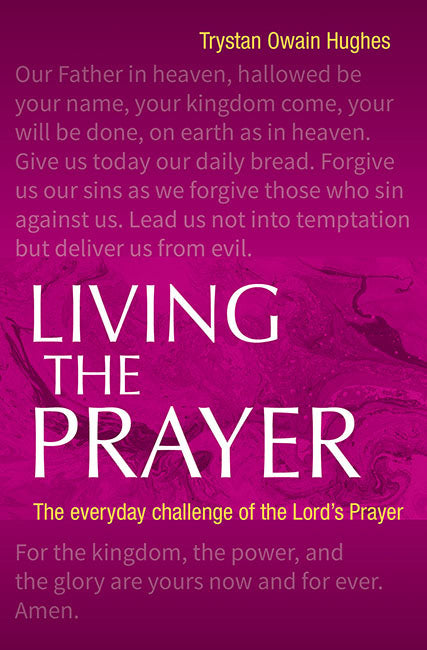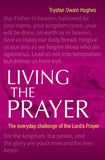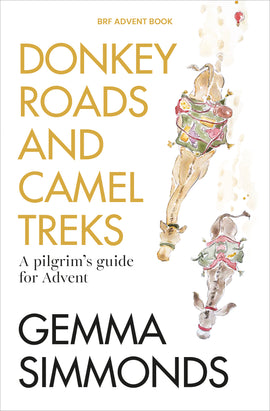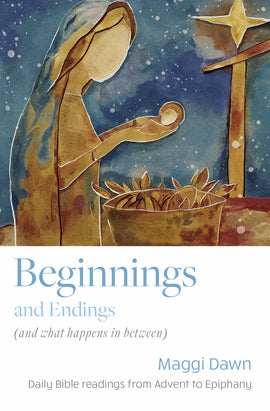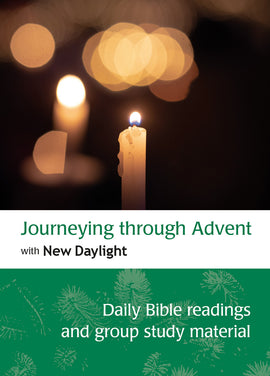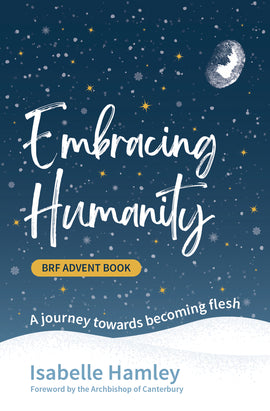Living the Prayer: The Everyday Challenge of the Lord's Prayer
What are we really saying when we say the Lord's Prayer?
What are we expecting?
Living the Prayer is a fresh perspective on the Lord's Prayer. Rooted in the Bible as well as in contemporary culture, it explores how this prayer can radically challenge and transform our daily lives. Contained in the prayer's seventy words is a fresh and innovative way of viewing, and acting in, the world that is as relevant now as it was 2000 years ago. The author shows that this revolutionary prayer demands that we don't remain on our knees, but, rather, that we work towards making God's topsy-turvy, downside-up kingdom an everyday reality.
| Title | Living the Prayer: The Everyday Challenge of the Lord's Prayer |
| Author | Trystan Owain Hughes |
| ISBN | |
| Description | What are we really saying when we say the Lord's Prayer? |
| Details |
|
What are we really saying when we say the Lord's Prayer?
What are we expecting?
Living the Prayer is a fresh perspective on the Lord's Prayer. Rooted in the Bible as well as in contemporary culture, it explores how this prayer can radically challenge and transform our daily lives. Contained in the prayer's seventy words is a fresh and innovative way of viewing, and acting in, the world that is as relevant now as it was 2000 years ago. The author shows that this revolutionary prayer demands that we don't remain on our knees, but, rather, that we work towards making God's topsy-turvy, downside-up kingdom an everyday reality.
Prologue
- Our Father, in heaven
- Hallowed be your name
- Your kingdom come, your wlil be done, on earth as in heaven
- Give us today our daliy bread
- Forgive us our sins, as we forgive those who sin against us
- Lead us not into temptation, but deliver us from evil
- For the kingdom, the power and the glory are yours now and for ever
Epliogue
Acknowledgements
Bibliography
Read the author's lockdown blog here.
Another great contribution from an author always rooted in the practicalities and compassion. Offering a resource on the most famous prayer in the world is a huge challenge but Hughes offers us something genuinely fresh and new. A reminder of the radical power of some life-changing words.
Revd Dr Keith Hebden, author and activist
The title of this book so aptly describes its contents. It is a not only a sensitive, thoughtful and painstaking exposition of the Lord's prayer, it is a call to put it in action in our lives and communities. In confronting us with the great gap which so often exists between what we pray and how we live, Trystan Hughes encourages us to face the challenges of living more fully before God. As each chapter carefully sifts the significance of every phrase of the Lord's prayer, we are offered wisdom from others and compelling insights from the author which take us into layers of new understanding. The result is a very fine contribution to a subject which can never be exhausted - and a contribution especially vital for today.
Dr Elaine Storkey, author and broadcaster
Trystan Owain Hughes is Tutor in Applied Theology at St Padarn’s Institute, Cardiff and priest-in-charge of Christ Church, Roath Park, Cardiff. He is particularly interested in making theology and spirituality relevant and he has written, among other books, Real God in the Real World and Living the Prayer for BRF. Trystan has also been a regular contributor to BBC Radio 2 and BBC Radio 4, is an honorary senior lecturer at Cardiff University, and is Canon Theologian at Llandaff Cathedral.
Iffley Church magazine. Review by Jan Spurlock Stockland
Don’t read this book unless you are open to change… or, more accurately, to be changed. The Everyday God starts from the premise that when Jesus told us to love God with all our heart, soul, mind and strength and to love our neighbours as ourselves, he meant it. Most of us – especially as we grow older – don’t think we have much to offer and, anyway, believe that the world’s problems are too big for us to make a difference. (And even if we are still relatively young, we may mostly think that we are the ones who need help!)
This engaging book asks us to think of our life experiences, our relationships, our work, and also the challenges we have faced, in the light of stories told in scripture and then to move from there to what we encounter in our ‘everyday lives’. In this book we find a wealth of contemporary, personal stories as well as stories and parables drawn from scripture. For example in Matthew 15 we see Jesus in a remote place surrounded by a crowd - some 5,000 + men (not counting the women and children); they had come to him for help and healing but were now hungry. Jesus turns to his disciples and asks them: ‘How many loaves do you have?’ Rather like we might feel today if Jesus were asking us to act, this was not a question the disciples might have anticipated. But Jesus, we are told, ‘had compassion for these people’. And that’s what we are called to consider in our own here and now.
When Jonathan Arnold moved from Oxford to Canterbury in 2019 (having taught theology in Oxford for more than a decade and served as Chaplain at Worcester and then Dean of Magdalen College), he found himself suddenly plunged into the needs of a sea of people, the thousands of men, women and children arriving traumatised and desperate along Dover’s coast. Working as Director of Communities and Partnerships in the Canterbury Diocese, Arnold came to know personally both refugees and a great swathe of people who through Lockdown and the cost-of-living crisis were just about managing to subsist through the kindness of strangers volunteering in local food banks, offering help and friendship in local churches of a variety of denominations as well as through local Citizens Advice Bureaux. He also got to know others who were committed to visiting young offenders in crowded prisons or who regularly called on sick people at home or in hospital or who were willingly coming alongside those facing illness and death, individuals who, like many in prison, faced a future without friends or hope.
In contrast to the world of privilege we see in Oxford, Jonathan came to know by name refugees without proper accommodation, food, work or language skills, as well as many British citizens who through low income, poor mental health, or sheer poverty were among our country’s thousands marginalised and lonely people. But alongside those in desperate need, Jonathan also got to know many ordinary people from across his diocese who, like Jesus, found themselves moved with compassion by the suffering of these people, resonating with the stories of strangers, and then inspired to work together towards social justice for all while respecting the humanity of each. Those who saw these strangers as ‘neighbours’ (in Jesus’ sense) were from all sorts of backgrounds and of these many did not identify as Christians. They simply listened and resonated with the stories of those in need and chose to respond with the help they recognized they’d been gifted with in their own lives.
As the Bishop of Dover the Rt Revd Rose Hudson-Wilkin writes in the forward to The Everyday God, when we meet the needs of others, ‘we are encountering Christ himself’. And the transformation is two-way: not only do we become conduits of the Lord’s love, we also become conduits for others. What has now become the Social Justice Network in the diocese of Canterbury (www.thesocialusticenetwork.org), with Jonathan as Executive director, is now enabling more and more people to be part of a vision which Hudson-Wilkin describes as ‘Changed Lives – Changing Lives.’
Find out more about the projects coordinated through the Social Justice Network by following the link to its website. site. All the projects are intensely, intrinsically collaborative, and the number of people and projects involved is growing. Through their work we realise that by working together people can make a real difference in the lives of others. For someone to recognise your face, know your name, or have the patience to listen and try to understand, allows strangers to find themselves more at home, more at peace with the place they now see is invested personally in them.
Our society with its fervent individualism has grown very out of tune with the song of God’s kingdom. This book encourages us to look, listen and respond to others from within the heart of community. God has promised never to leave or forsake us; He has in Truth been alongside us all our lives. So it is instructive to accept the invitation offered in this short book to make time to pray as well as to reflect on its stories and on scripture and reconsider what skills, experience, challenges and wisdom we, each of us, have gained in living our lives thus far. In so doing we may discover compassion in our own hearts for the stranger and take some small (or large steps) towards those whose stories we don’t yet know. We have examples of just such risky relating in those who weekly go along to Community Cupboard with the Rose Hill Methodists or the volunteers with Living Stones who regularly welcome visitors into our church. Jonathan Arnold pulls no punches in this book about the risks of turning out towards others. Early on he tells us, 'If we truly give the gift of ourselves, then we must be ready to be challenged and changed. Existing for others involves duty and responsibility, but existing with others involves relationship. And so we come to the notion of “being with” as a model for living out lives of mercy and love.' (p. 50)
Several millennia ago the Lord gave the ancient Israelites a very similar vision when through the prophet Micah (8th century BCE) He said:
‘The Lord God has told us what is right and what he demands: “See that justice is done, let mercy be your first concern, and humbly obey your God.”’
Reviewed by Jan Spurlock Stockland
Review in The Church Times 19.1.18 by David Adam
'Living the Prayer' is a well-researched and thoughtful exposition of the Lord's Prayer. It offers new challenges and ideas for radical action in our use of the Lord's Prayer. There are within it some amazing suggestions of ways to transform our contemporary culture and our daily lives.
Placing the Lord's Prayer in its first-century context, the author shows us that the prayer is far more radical than being merely comforting words: it is a comprehensive call to action living out the words of this prayer. We are reminded that 'All prayer demands a vital relationship both with God and others,' and that 'The Lord's Prayer is communal at its core.' I felt that I wanted to extend the idea of 'vital relationships' to all of creation and not just humans.
Then, in noting that the plural form of the Greek word for 'heaven' is used, it is possible to say it as 'in the heavens, and, therefore, it may not be about God's distance from us, but in the atmosphere, in the very air that we breathe, implying God's closeness. I felt that if we read it this way, what a challenge it is to what we are doing to the air that we breathe by the emission of so much carbon dioxide.
The Lord's Prayer is not just a mystic's prayer but a doer's prayer, an activist's prayer. In a nutshell, prayer is a relationship with God which inspires us to act, 'as we witness to a wild, radical, subversive, dynamic, and life-changing faith'. The Lord's Prayer demands nothing less than a revolution, as we move to view the world through the eyes of the one who gave us words.
I would recommend this book as one to be on the reading list of all who are concerned with prayer and the world.
Canon David Adam is a former Vicar of Holy Island
The Presbyterian Herald
Review by the Revd Dr Jim Campbell, Minister Emeritus Cooke Centenary Church, Belfast
The 63 words of the Lord's Prayer have inspired thousands or books and millions of sermons through the centuries. It's a brave person who would offer yet another book on the topic. Consequently, I was rather sceptical when I was asked to review this book.
Amazingly, Trystan Hughes, examining each of the seven phrases in the prayer in turn, manages through his deep biblical understanding and his knowledge of contemporary literature and film to produce a commentary that is well illustrated, fresh and interesting and one which engages with the main issues raised by the words of the prayer. Overall, his message is that this revolutionary prayer demands that we don't remain on our knees, but rather that we rise 'to work towards making God's topsy-turvy, downside-up kingdom, an everyday reality.'
If you want to deepen your understanding and appreciation of the Lord's Prayer and also let it fully permeate your life this could be the book for you.
Review by the Revd Dr Jim Campbell, Minister Emeritus Cooke Centenary Church, Belfast
Review by blogger Thomas Creedy
I read [Living the Prayer] in one sitting - with what I would mostly call breathless enjoyment... This is an excellent book in the tradition of powerful, prophetic, prayerful writing on the Lord's Prayer. I hope it receives a wide readership... Trystan paints a beautiful picture of the Kingdom of God, breaking in and just out of reach. He is particularly focused on the justice aspect of the Kingdom - the book is littered with calls to action and protest, against the way things are - but some of the most moving writing has to do with how we experience the Kingdom of God in brokenness and pain...
This book is one that would work well as a devotional to go deeper into the Lord's Prayer, or as a book to read about the Lord's Prayer and prayer in general, or as a very helpful bank of quotes and ideas to mine if preaching or writing about prayer...
An expert blend of what I would call a passion for the Lord's Prayer and an encouragement and celebration of prayer more generally. Throughout, as one might expect from someone who has both written about justice and marinated deeply in the Lord's Prayer, there is the throbbing beat of justice.
http://www.thomascreedy.com/book-review-living-the-prayer

